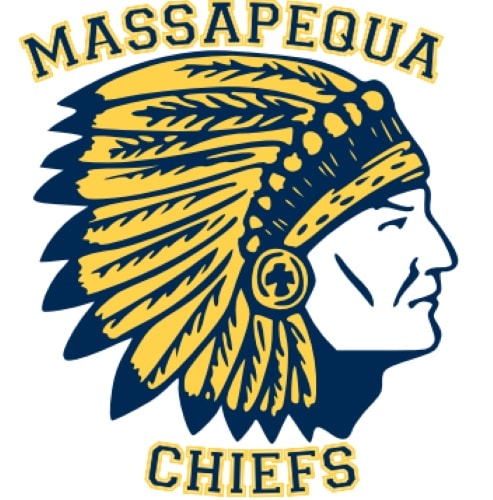In a decision with sweeping national implications, the U.S. Department of Education (DOE) ruled Friday that New York’s ban on Native American-themed school mascots violates federal civil rights law. The agency’s Office for Civil Rights (OCR) found the policy discriminatory under Title VI of the Civil Rights Act of 1964, which prohibits race- and national origin-based discrimination in federally funded programs.

The investigation stemmed from a complaint filed by the Native American Guardians Association (NAGA), which argued that the New York State Department of Education (NYSED) and Board of Regents unfairly targeted Indigenous names and imagery—such as the “Chiefs” mascot of the Massapequa School District—while allowing other mascots referencing European groups like the “Dutchmen” and “Huguenots” to remain.
The NAGA is a Native-themed advocacy group that primarily fights against the removal of Native American mascots—a position that puts it at odds with many Native American organizations, such as the National Congress of American Indians, and civil rights advocates.
RELATED: Trump’s Education Department Moves to Defend A Historically Inaccurate Native American Mascot
The controversial policy was adopted in 2023 to eliminate Indigenous-themed names, mascots, and logos in public schools statewide. Although several Long Island school districts challenged the rule in court, a federal judge dismissed their First Amendment claims in March due to insufficient evidence. The DOE’s civil rights probe, however, reached a far more critical conclusion.
“The New York Department of Education and Board of Regents has set its sights on erasing Massapequa’s history—while turning a blind eye to other districts’ mascots that are derived from other racial or ethnic groups,” Education Secretary Linda McMahon said in a strongly worded statement. She pledged support for communities like Massapequa, calling the ban a violation of “commonsense and justice.”
The DOE has given New York ten days to rescind the regulation and issue written apologies to Native American tribes, acknowledging that the state “silenced the voices of Native Americans and attempted to erase Native American history.” If the state fails to comply, the case will be referred to the Department of Justice, potentially triggering enforcement action and a loss of federal funding.
In response, New York education officials condemned the DOE’s stance. NYSED spokesperson JP O’Hare dismissed McMahon’s visit to the state as “political theater,” accusing her of disrupting student learning for partisan purposes.
O’Hare defended the mascot ban, citing consultations with Native tribes who argue that such imagery perpetuates racial stereotypes and harms students. “Massapequa is doing a grave disservice to its students by ignoring facts and refusing to consult with local tribes,” he said. He added that true respect for Native Americans comes not from mascots but from teaching students “the true history of the area’s Indigenous people.”
The dispute underscores a broader philosophical and legal divide: whether cultural mascots honor heritage or perpetuate harm. While groups like NAGA support preserving Native-themed mascots as respectful tributes, many Indigenous organizations and civil rights groups—including the National Congress of American Indians—argue they reinforce outdated and offensive stereotypes.
As the deadline looms, New York appears poised for a prolonged legal battle. The outcome could redefine how schools nationwide navigate the intersection of cultural expression, civil rights, and educational policy.
More Stories Like This
Native News Weekly (August 25, 2024): D.C. BriefsUS Presidents in Their Own Words Concerning American Indians
I’m a Minneapolis Postal Worker. This Is What I Saw.
Next on Native Bidaské: Inside Dark Winds with the Cast of Season 4
'Sovereignty Predates the United States,' NCAI President Mark Macarro Tells Tribal Nations
Help us defend tribal sovereignty.
At Native News Online, our mission is rooted in telling the stories that strengthen sovereignty and uplift Indigenous voices — not just at year’s end, but every single day.
Because of your generosity last year, we were able to keep our reporters on the ground in tribal communities, at national gatherings and in the halls of Congress — covering the issues that matter most to Indian Country: sovereignty, culture, education, health and economic opportunity.
That support sustained us through a tough year in 2025. Now, as we look to the year ahead, we need your help right now to ensure warrior journalism remains strong — reporting that defends tribal sovereignty, amplifies Native truth, and holds power accountable.
 The stakes couldn't be higher. Your support keeps Native voices heard, Native stories told and Native sovereignty defended.
The stakes couldn't be higher. Your support keeps Native voices heard, Native stories told and Native sovereignty defended.
Stand with Warrior Journalism today.
Levi Rickert (Potawatomi), Editor & Publisher


